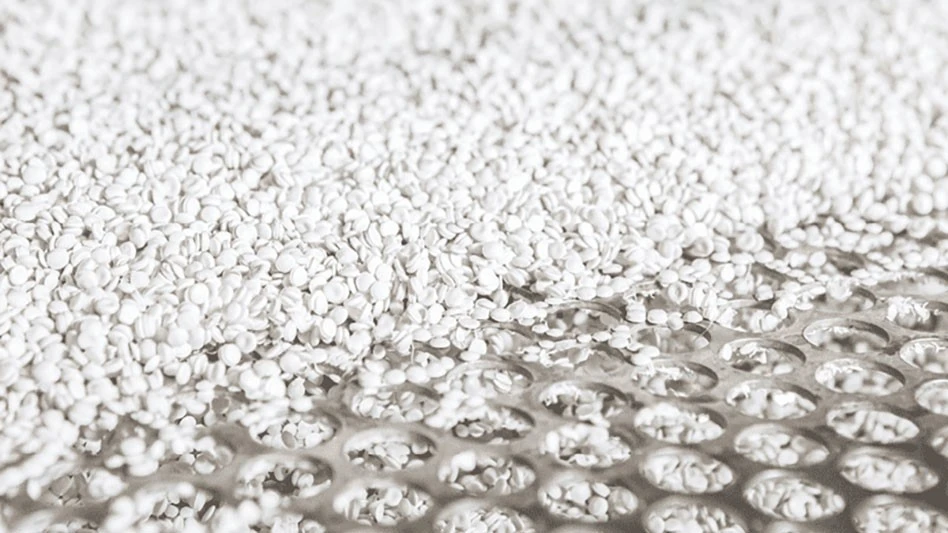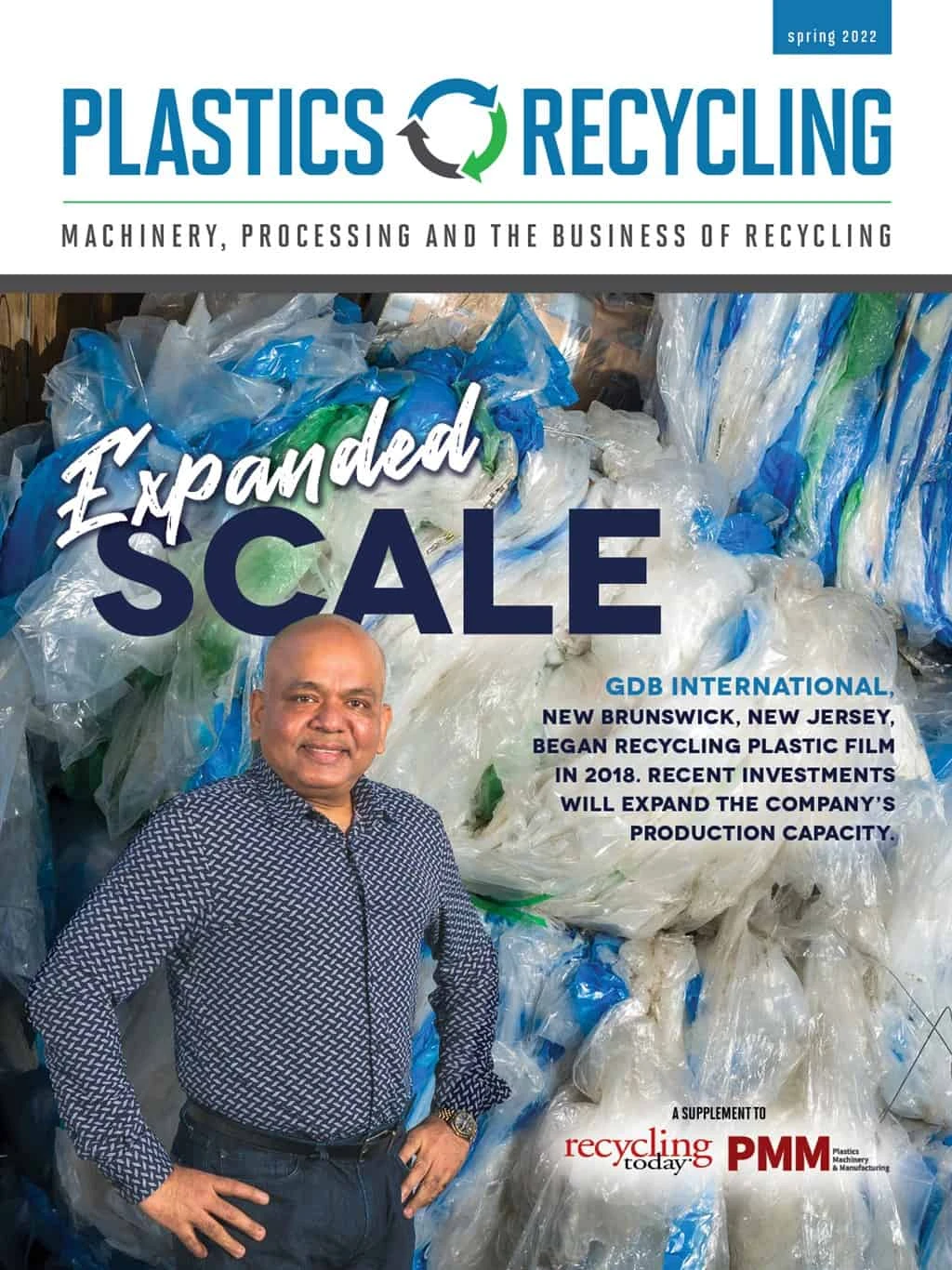
Photo courtesy of Revolution

As we begin 2022, all signs point to the fact that we are in a packaging revolution. At no other time have brands been as focused and transparent about reducing the environmental impacts of their supply chains. As the plastics pollution crisis became widely recognized by consumers, brands appropriately responded by making commitments to advancing the circularity of their packaging, including greater use of recycled content.
These dramatic shifts in sourcing and manufacturing will need to be enabled and expedited by new tools. For example, the latest report from the World Wildlife Fund estimates the five principal members of ReSource: Plastic, which was founded in 2019, have increased their use of recycled content from 7.8 percent in 2018 to 9.7 percent in 2020. While this is progress, many brands have a long way to go to meet their 2025 and 2030 recycled content goals.
As brands make this transition, some fundamental questions have emerged:
- What assurance can be offered that claims of recycled content from suppliers are authentic?
- How can brands accurately track the recycled content in their product portfolios, also accounting for postindustrial materials separately from postconsumer materials?
- How can recycling capacity be scaled quickly to grow the quality and supply of recycled materials available for manufacturing?
The Recycled Material Standard (RMS) Framework and the companion Plastics Module were developed to directly address these questions. And as RMS moves into the implementation phase, 2022 will be a pivotal year.
RMS overview
The RMS is a chain-of-custody standard that certifies recycled materials from the point of transformation at the recycler to final production. Brands can convey those recycled material claims on their package and through reporting, or they simply can use the RMS as an internal assurance tool for material accounting. Companies can certify physical recycled materials that can be used in traditional percentage claims, or they can apply certified recycled materials to parts of their product portfolio through mass balance accounting—a material accounting approach commonly used in other industries that certify responsible sourcing of products, such as palm oil, organic cotton and fair-trade coffee.
Lastly, RMS-certified recyclers can generate Attributes of Recycled Content (ARCs), which are tradable certificates similar to renewable energy certificates. If recyclers meet certain additionality criteria, they can generate ARCs that can then be purchased by brand owners seeking to support the growth of recycled materials where adequate supply might not exist.
While the RMS is material neutral, it is first being applied to the plastics supply chain. The Plastics Module details how the RMS is to be applied to the plastics supply chain and processes for that specific material. Given the urgency of closing the loop on plastic products, the Plastics Module was the first to be developed, but additional material modules will soon be developed to further enable broad-scale adoption of the RMS to promote the use of recycled materials across all manufacturing.
More than just a document
Developing a third-party standard for any environmental or sustainability attribute is a process that requires a great deal of vision, involves many steps from design to implementation and relies on a broad range of stakeholders to ensure relevance and impact. The RMS has announced that a number of key milestones have been achieved, marking the transition from development to implementation in the marketplace.
The RMS Framework and Plastics Module were published in the spring of 2021. The stakeholder engagement that supported the development of these documents took about two years. The process, which followed the ISEAL Code of Good Practice for standard development, engaged a broad range of stakeholders, including resin suppliers, converters, recyclers, brands, regulators and nongovernmental organizations, to develop a balanced standard.
Publishing the standard so companies could prepare for implementation was just the first major milestone in the process of getting the standard into practice.

Maintaining standard integrity
Anyone who has visited a handful of recycling facilities knows no two recyclers operate the same. The same can be said of manufacturing sites. So, when a standard becomes operationalized, the implementation could look different from site to site.
Once a standard is put into practice, the challenge becomes ensuring that the principles and intent of the standard are consistently applied from one facility to another. So, finding the right certification body that employs a pool of auditors with the right combination of experience is key.
In early December, SCS Global Services, Emeryville, California, became the first certification body to be accredited by GreenBlue, based in Charlottesville, Virginia, and the initiator of the RMS, to perform audits leading to RMS certification. Because the RMS is much more than a certification for physical recycled content, it was important to partner with a certification body that has experience in auditing to standards that use mass balance accounting as well as additionality criteria.
“SCS meets all of the criteria set forth in the RMS Requirements for Certification Bodies, and we are confident that they will bring the consistency and impartiality we are looking for as the standard is applied in the marketplace,” says Laura Thompson, RMS director.
“The RMS offers a range of mechanisms for certifying use of recycled materials and supporting investments in expanding supply of recycled materials. It was important to find a certification body that understands the flexibility that the RMS affords companies that are seeking certification while maintaining the rigor of the intent of the standard,” she adds.
The RMS team says it expects to announce additional qualified certification bodies in 2022 to expand access to auditors as demand for certification increases.
RMS in practice

The close of 2021 marked another significant milestone for RMS implementation with the announcement of three recyclers achieving certification: Revolution, Arqlite and Granite Peak Plastics. Each of these recyclers sought certification as a way to meet its unique customer or organizational needs.
“With a focus on working collaboratively to drive the plastics circular economy, we understand how important it is to assure brands, and ultimately consumers, that the postconsumer resin they are receiving from Revolution has been independently certified,” Cherish Miller, vice president of Sustainability and Public Affairs at Revolution, said at the time of the announcement.
Through innovative engineering, Revolution has developed a method to produce high-quality plastics from recycled materials for a wide range of market applications while maintaining the smallest carbon footprint possible.
Miller added, “As supply chain expectations continue to evolve, our goal is to continue to be at the forefront by providing certified resins to other supply chain members (from both postconsumer and postindustrial sources) as well as finished goods containing certified recycled content.”
In addition to offering RMS-certified materials, Arqlite and Granite Peak Plastics will participate in ARC generation and trading. That trading will be facilitated by New York-based ACT Commodities, a global provider of sustainability solutions in the emissions, renewable fuels, renewable energies and energy efficiency markets.
“ACT is excited about the development of the RMS standard, which enables our clients to act upon their sustainability commitments through the purchasing of ARCs,” Dylan Lubbe, Strategy and Development at ACT, said at the time of the announcement. “These ARCs will help to finance the much-needed expansion of the current recycling infrastructure and the advancement of recycling technologies.”
He added, “We are grateful to SCS Global Services for playing such an important role as an accredited third-party verifier. The ARCs can only be issued after participating companies undergo the robust SCS audit process, which ultimately strengthens the credibility and integrity of ARCs within the RMS.”
These companies have led the way as being the first cohort of RMS-certified companies. In 2022, the number of RMS-certified companies is anticipated to expand across the supply chain, advancing the use of recycled materials and enabling brands to make claims that can be traced from recyclers to a wide range of finished products.
Horizon for 2022
The next milestone the RMS team looks forward to celebrating is the completion of the first ARC transaction, which is expected to occur in the first quarter of this year. This will mark the launch of an entirely new market for certificate trading that has the potential to catalyze investment in the plastics recycling industry, similar to the growth seen in green energy with the development of renewable energy credits.
For certified recyclers that meet the additionality criteria, ARCs could become an important revenue source for the growth of their operations.
The RMS team also will continue to build implementation resources for participating companies and work with new companies to get their RMS certification process started. Webinars will be offered throughout the year to familiarize the industry with the utility of the RMS and help companies explore ways the RMS can create new value for their products and their organization. The team also will offer ongoing trainings for auditors and certified participants, ensuring that as participation in the standard grows, the intent and integrity of the standard is rigorously maintained.
Recyclers, resin suppliers, converters and others in the plastics supply chain are encouraged to explore the benefits that certified companies already are experiencing by being RMS certified. Those who want to track these developments can follow the RMS on Twitter @RMScertified or sign up to receive program updates at www.rmscertified.com/contact.

Explore the Spring 2022 Plastics Recycling Issue
Check out more from this issue and find your next story to read.
Latest from Recycling Today
- Phoenix Technologies closes Ohio rPET facility
- EPA selects 2 governments in Pennsylvania to receive recycling, waste grants
- NWRA Florida Chapter announces 2025 Legislative Champion Awards
- Goldman Sachs Research: Copper prices to decline in 2026
- Tomra opens London RVM showroom
- Ball Corp. makes European investment
- Harbor Logistics adds business development executive
- Emerald Packaging replaces more than 1M pounds of virgin plastic





